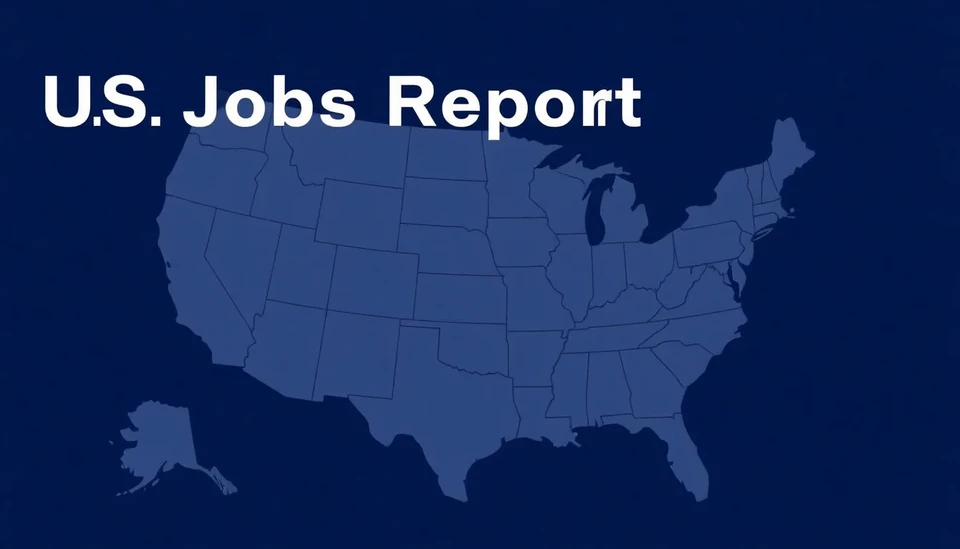
Soft Polish Wage Growth Signals Potential Interest Rate Cuts in May
Recent data from Poland has indicated that wage growth is slowing, which analysts suggest could lead the National Bank of Poland to consider cutting interest rates in the near future. The annual wage growth rate, which had previously shown signs of robust increases, has now softened significantly, raising expectations regarding monetary policy adjustments.
Continue reading
UK Wage Growth Surges Amidst Declining Employment: A Dilemma for the Bank of England
In a conflicting economic landscape, recent data has revealed that UK wage growth has accelerated significantly, despite a noticeable downturn in employment figures. This development places the Bank of England (BoE) in a challenging position as it navigates the complexities of monetary policy amid shifting labor market dynamics.
Continue reading
Japan's DPP Leader Suggests Potential BoJ Rate Cuts Amid Tariff Concerns
In a significant development for Japan's economic landscape, the leader of the Democratic Party for the People (DPP) has put forth the possibility of the Bank of Japan (BoJ) reducing interest rates. This move is being considered in response to a potential economic slowdown triggered by newly implemented tariffs that could place additional strain on the country’s economy. The statement has raised eyebrows and sparked discussions among policymakers and economists alike.
Continue reading
US Jobs Report for March 2025: Key Insights and Market Impacts
The latest employment data for the United States, released on April 4, 2025, reveals significant developments in the job market, indicating a dynamic economic environment as the nation continues its recovery from the challenges posed by the pandemic. The report has been closely scrutinized by economists, policymakers, and investors alike for its implications on economic performance and labor trends.
Continue reading
UK Workers Experience Slowdown in Pay Growth Ahead of Minimum Wage Increase
In a recent report, it has been revealed that UK workers have noticed a significant easing in pay growth just weeks before the national minimum wage is set to rise. This trend raises questions about the balance between wage increases and inflation pressures that have been dominating discussions in the labor market.
Continue reading
Bank of Japan's Interest Rate Hike Consideration Sparks Caution Amid Rising Economic Pressures
The recent discussions surrounding a potential interest rate hike by the Bank of Japan (BoJ) are stirring caution among financial analysts and market observers. A report published on April 2, 2025, indicates that experts from the Democratic Party of the People (DPP) believe any decision to raise rates in May would be premature, particularly considering the backdrop of escalating tariffs and fluctuating wage growth in the economy.
Continue reading
The Illusion of Wage Growth in Japan: Analyzing Rengo's Optimistic Data
Recent reports suggest a sheen of optimism regarding wage growth in Japan, but a closer examination reveals that the reality may not be as bright as presented. According to data from Rengo, the Japanese Trade Union Confederation, wage increases have been touted as a sign of economic recovery and improved living standards. However, critical insights from recent economic analyses raise doubts about the sustainability and genuine impact of these wage trends.
Continue reading
Concerns Arise Over UK's Pay Data, Impacting Bank of England Policies
In a recent development that has significant implications for the United Kingdom's economic policy, economists are raising doubts about the accuracy of pay data that has been closely monitored by the Bank of England (BoE). The concerns come amid ongoing discussions about inflation rates and wage growth, which are central to the BoE's monetary policy decisions.
Continue reading
Australia's Job Market Remains Robust Amid Economic Uncertainties
The Australian job market continues to demonstrate notable resilience, despite various economic uncertainties that have arisen recently. According to insights provided by the Reserve Bank of Australia (RBA), the labor market is still characterized as tight, reflecting the ongoing demand for workers across a range of sectors.
Continue reading
Polish Economic Indicators Challenge Central Bank's Interest Rate Stability
Recent economic data from Poland has cast doubt on the central bank's current stance regarding interest rates. The latest reports reveal that wage growth coupled with robust economic output contradicts the Polish central bank's view that a period of steady rates is likely. This situation prompts economists and analysts to rethink their forecasts for monetary policy in the coming months.
Continue reading